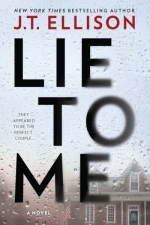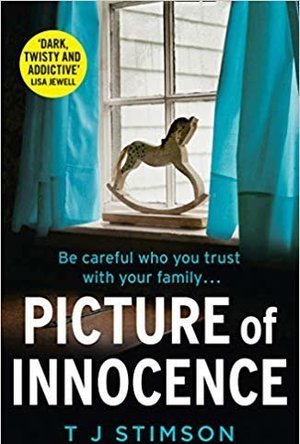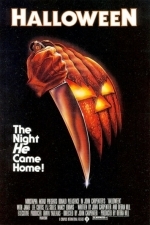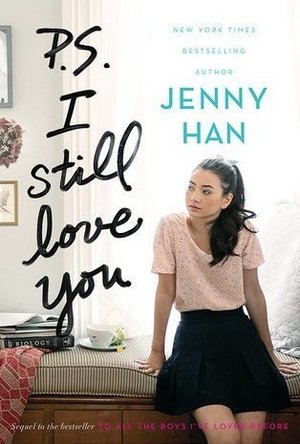Search
Search results
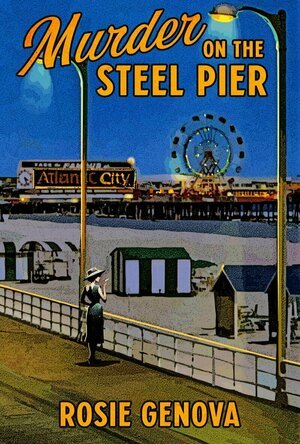
Murder on the Steel Pier (A Tess Mancini Time Travel Mystery #1)
Book
Greetings from the Nifty Fifties… The morning after a blowout birthday celebration in Atlantic...
Historical Mystery Time Travel
Whatchareadin (174 KP) rated Lie to Me in Books
May 10, 2018
On the outside, Ethan and Sutton Montclair seem like the perfect couple. They are both writers and are crazy about each other. But they have secrets in their past that will soon surface. Sutton has disappeared and told her husband she didn't want to be found. Her friends are convinced, that Ethan has done something to hurt her, but the police are not convinced. When bodies turn up and secrets are revealed, will Ethan be able to maintain his innocence?
I gave this book 4.5 stars(why won't GR let us to halves). This was quite a thrilling story that kept me on the edge of my seat. But I figured out early on who the culprit was although I didn't see all the twists and turns that were coming along with it.
Ethan Montclair was the more famous of the two, but Sutton didn't mind that at all. They had agreed when they got married, that their lives were too busy and complicated for a child so they wouldn't have them, but when Ethan switches out her birth control pills and Sutton gets pregnant anyway, at first she hates him, but when their son is born, all of that changes. Not too long after though, he dies and their whole world comes crashing down. Ethan can no longer write and he spends his time bothering Sutton while she tries to. They have a few altercations and then Sutton decides she can't take it anymore and leaves. Or does she? Has she really just picked up and left without a trace? Not taking any of her belongings with her? Or has Ethan done something to her as her friends suspect? You have to read the book to find out.
I gave this book 4.5 stars(why won't GR let us to halves). This was quite a thrilling story that kept me on the edge of my seat. But I figured out early on who the culprit was although I didn't see all the twists and turns that were coming along with it.
Ethan Montclair was the more famous of the two, but Sutton didn't mind that at all. They had agreed when they got married, that their lives were too busy and complicated for a child so they wouldn't have them, but when Ethan switches out her birth control pills and Sutton gets pregnant anyway, at first she hates him, but when their son is born, all of that changes. Not too long after though, he dies and their whole world comes crashing down. Ethan can no longer write and he spends his time bothering Sutton while she tries to. They have a few altercations and then Sutton decides she can't take it anymore and leaves. Or does she? Has she really just picked up and left without a trace? Not taking any of her belongings with her? Or has Ethan done something to her as her friends suspect? You have to read the book to find out.
Billie Wichkan (118 KP) rated Picture of Innocence in Books
May 22, 2019
My name is Lydia. Im 12 years old. Im not an evil person, but I did something bad.
My name is Maddie. Id never hurt my son. But can I be sure if I dont remember?
With three children under ten, Maddie is struggling. On the outside, shes a happy young mother, running a charity as well as a household. But inside, shes exhausted. She knows shes lucky to have to have a support network around her. Not just her loving husband, but her family and friends too.
But is Maddie putting her trust in the right people? Because when tragedy strikes, she is certain someone has hurt her child and everyone is a suspect, including Maddie herself
The women in this book are about to discover that looks can be deceiving because anyone is capable of terrible things. Even the most innocent, even you.
This is the story of every mothers worst fear. But its not a story you know and nothing is what it seems.
Picture Of Innocence is a dark psychological thriller.
This novel had me utterly hooked!
The story follows the lives of two women: Maddie and Lydia, and the theme is nature versus nurture.
I really enjoyed the two stories of two women in two different periods of time and watching how those stories intertwined.
This is one devious thriller!
There are so many twists, turns and red herrings in this book; you will be guessing and open mouthed even down to the last page!
I wont give any spoilers, suffice to say that its shocking and dreadful and heartbreaking all at the same time.
I have to commend T. J. Stimson for a brilliant read!
Many Thanks to AVON Books, UK and NetGalley for a wonderful read
My name is Maddie. Id never hurt my son. But can I be sure if I dont remember?
With three children under ten, Maddie is struggling. On the outside, shes a happy young mother, running a charity as well as a household. But inside, shes exhausted. She knows shes lucky to have to have a support network around her. Not just her loving husband, but her family and friends too.
But is Maddie putting her trust in the right people? Because when tragedy strikes, she is certain someone has hurt her child and everyone is a suspect, including Maddie herself
The women in this book are about to discover that looks can be deceiving because anyone is capable of terrible things. Even the most innocent, even you.
This is the story of every mothers worst fear. But its not a story you know and nothing is what it seems.
Picture Of Innocence is a dark psychological thriller.
This novel had me utterly hooked!
The story follows the lives of two women: Maddie and Lydia, and the theme is nature versus nurture.
I really enjoyed the two stories of two women in two different periods of time and watching how those stories intertwined.
This is one devious thriller!
There are so many twists, turns and red herrings in this book; you will be guessing and open mouthed even down to the last page!
I wont give any spoilers, suffice to say that its shocking and dreadful and heartbreaking all at the same time.
I have to commend T. J. Stimson for a brilliant read!
Many Thanks to AVON Books, UK and NetGalley for a wonderful read
Steve Fearon (84 KP) rated Halloween (1978) in Movies
Sep 5, 2018 (Updated Sep 5, 2018)
John Carpenter's Slasher still stands tallest
Contains spoilers, click to show
That theme song starts.
You feel it somewhere deep inside, that feeling that something special is going to happen.
Halloween is THE Slasher, with a silent antagonist, an over-the-top performance from Donald Pleasance, the introduction of Jamie Lee Curtis, and the establishment of John Carpenter as one of the foremost purveyors of horror.
Patiently paced, with little time given to explanation of exposition, we are taken on the slow build up of tension as we go from the legendary intro sequence, to a breakout at the asylum, through to the stalking of teenagers by the man in the William Shatner mask.
Lots of shots of Myers just watching, waiting, judging, which could be interpreted as boring on paper, but it is just the right side of unnerving, and it is this constant threat which means the viewer is constantly scanning the edges of the screen, looking for our antagonist.
It contrasts beautifully with the naivety and innocence of his victims, who are just trying to enjoy Halloween as most teenagers are wont to do.
Yes this film is relatively tame compared to the films that have come after, but few can touch the pure sinister feel and atmosphere that Carpenter creates, and it is a simply iconic entry in cinema history.
Watch it for what it is, a genre changing horror film, that changed all that followed it.
No Myers, No Friday 13th, No Scream, No Nightmare On Elm Street.
Its that important.
You feel it somewhere deep inside, that feeling that something special is going to happen.
Halloween is THE Slasher, with a silent antagonist, an over-the-top performance from Donald Pleasance, the introduction of Jamie Lee Curtis, and the establishment of John Carpenter as one of the foremost purveyors of horror.
Patiently paced, with little time given to explanation of exposition, we are taken on the slow build up of tension as we go from the legendary intro sequence, to a breakout at the asylum, through to the stalking of teenagers by the man in the William Shatner mask.
Lots of shots of Myers just watching, waiting, judging, which could be interpreted as boring on paper, but it is just the right side of unnerving, and it is this constant threat which means the viewer is constantly scanning the edges of the screen, looking for our antagonist.
It contrasts beautifully with the naivety and innocence of his victims, who are just trying to enjoy Halloween as most teenagers are wont to do.
Yes this film is relatively tame compared to the films that have come after, but few can touch the pure sinister feel and atmosphere that Carpenter creates, and it is a simply iconic entry in cinema history.
Watch it for what it is, a genre changing horror film, that changed all that followed it.
No Myers, No Friday 13th, No Scream, No Nightmare On Elm Street.
Its that important.
Cori June (3033 KP) rated The Last Unicorn (The Last Unicorn, #1) in Books
Dec 11, 2018
harpy scene (2 more)
the characters
The timelessness and that it grows with you
As a child l loved this movie. And I cannot write a review with out chiming in with the movie. Both the book and screenplay was written by Peter S. Beagle. So they are very similar the book expands most of the scenes. And the only thing that is omitted is basically chapter 10(?). I had watched the movie the first time when I was around 5 or 6 and first read the book while I was a college student 17 or 18 and loved it too. The book and movie is for all ages (although that harpy scene...) and it does and doesn’t change as you grow older. It’s about love and duty, innocence and aging, loss and sorrow and many many things in between. Smendrick is still my favorite character although know I’m older I realize the importance of Molly Grue. A very well written story. Good on a lazy day when you don’t want to rush through a book.
I will leave with this one quote:
“It’s a rare man who is taken for what he truly is,...there is much misjudgment in the world. Now, I knew you for a unicorn when I first saw you, and I know I am your friend. Yet you take me for a clown, or a clod, or a betrayer, and so must I be if you see me so. The magic on you is only magic and will vanish as soon as you are free, but the enchantment of error that you put on me I must wear forever in your eyes. We are not always what we seem, and hardly what we dream.”
I will leave with this one quote:
“It’s a rare man who is taken for what he truly is,...there is much misjudgment in the world. Now, I knew you for a unicorn when I first saw you, and I know I am your friend. Yet you take me for a clown, or a clod, or a betrayer, and so must I be if you see me so. The magic on you is only magic and will vanish as soon as you are free, but the enchantment of error that you put on me I must wear forever in your eyes. We are not always what we seem, and hardly what we dream.”
Veronica Pena (690 KP) rated P.S. I Still Love You (To All the Boys I've Loved Before, #2) in Books
Jan 21, 2020
I loved the first book in this trilogy so much so going into this one, I had expectations. I was nervous to see what happened between John Ambrose McClaren and Lara Jean, especially because I found myself being Team Peter all the way. I think that this book, actually just the series as a whole is one that is just so sweet and pure and I think it's a new take on a love story. I feel like young adult and fiction is so saturated with love stories that it's hard to find good ones, ones that feel real and make your heart stop, the kind of romance stories that would make a good movie, ya know? I really think this series is out of the box and I like the diversity that it brings not only to YA but to the entire romance genre in general.
It's clear that this book is a stepping stone between the first and the third. It's not as fast-paced as the first book and the details that end up mattering aren't always the biggest ones. It's definitely a bridge that I hope will bring the first and the third together in a way that rounds out the story and I'm excited to see what happens in the conclusion of the series.
I love Lara Jean as a character and her innocence. I know that I'm not that far out from being 16, going on 17, but it's easy to get caught up in the facets of adult life and having to take care of everything all the time and be serious and have a lot of responsibilities. What I like the most about this series is how it transports you and next thing you know, you're 16, going on 17, and you're falling in love with Peter Kavinsky alongside Lara Jean Song Covey.
It's clear that this book is a stepping stone between the first and the third. It's not as fast-paced as the first book and the details that end up mattering aren't always the biggest ones. It's definitely a bridge that I hope will bring the first and the third together in a way that rounds out the story and I'm excited to see what happens in the conclusion of the series.
I love Lara Jean as a character and her innocence. I know that I'm not that far out from being 16, going on 17, but it's easy to get caught up in the facets of adult life and having to take care of everything all the time and be serious and have a lot of responsibilities. What I like the most about this series is how it transports you and next thing you know, you're 16, going on 17, and you're falling in love with Peter Kavinsky alongside Lara Jean Song Covey.
Veronica Pena (690 KP) rated The Amazing Spider-Man (2012) in Movies
Apr 29, 2020
There's a lot to love about this film and a lot to hate. I think this film does the best job of allowing you to live through Peter more than any other film. Some of my favorite shots throughout the whole movie are the ones where it looks like we're in Peter's perspective as he traverses New York City. I love Andrew Garfield in this role. Even though he's 27 in the film, he played a high school kid fairly well - at least I think so. I love Emma Stone too. As a blonde, I feel like she has this innocence that she doesn't have as a redhead.
Truthfully, I like Andrew Garfield's Spiderman and Tom Holland's Spiderman way more than I like Toby McGuire's. I think this film is entertaining and a good watch. You definitely get hooked in on Peter and are rooting for him. The only thing I didn't like were some of the effects. It's clear that there was more effort or money put in some scenes than others. Maybe that's just my opinion, but those small details can really pull you out of the world the film creates.
The other detail I appreciated is Gwen. When we think and talk about Spiderman, unless you're a die-hard fan, you think of Mary Jane. And she's great. Don't get me wrong. Kirsten Dunst in Toby McGuire's and Zendaya as M.J. in Tom Holland's, but Gwen often gets forgotten. I like that in this series, Gwen is the love interest instead of Mary Jane.
Overall, I really enjoyed this film. I think I still like Tom Holland's Spiderman better, but I think the fact that he's in the MCU plays a part in my love of him. I would recommend both of these films just to say you watched them.
Truthfully, I like Andrew Garfield's Spiderman and Tom Holland's Spiderman way more than I like Toby McGuire's. I think this film is entertaining and a good watch. You definitely get hooked in on Peter and are rooting for him. The only thing I didn't like were some of the effects. It's clear that there was more effort or money put in some scenes than others. Maybe that's just my opinion, but those small details can really pull you out of the world the film creates.
The other detail I appreciated is Gwen. When we think and talk about Spiderman, unless you're a die-hard fan, you think of Mary Jane. And she's great. Don't get me wrong. Kirsten Dunst in Toby McGuire's and Zendaya as M.J. in Tom Holland's, but Gwen often gets forgotten. I like that in this series, Gwen is the love interest instead of Mary Jane.
Overall, I really enjoyed this film. I think I still like Tom Holland's Spiderman better, but I think the fact that he's in the MCU plays a part in my love of him. I would recommend both of these films just to say you watched them.
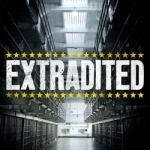
Extradited!: The European Arrest Warrant & My Fight for Justice from a Greek Prison Cell
Book
2003: The European Arrest Warrant (EAW) is introduced under the Extradition Act. A mechanism...
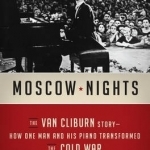
Moscow Nights: The Van Cliburn Story: How One Man and His Piano Transformed the Cold War
Book
Gripping narrative nonfiction that tells the dramatic story of a remarkable young Texan pianist, Van...
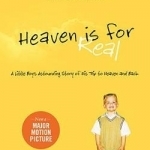
Heaven is for Real: A Little Boy's Astounding Story of His Trip to Heaven and Back
Todd Burpo, Sonja Burpo and Lynn Vincent
Book
"A beautifully written glimpse into heaven that will encourage those who doubt and thrill those who...
